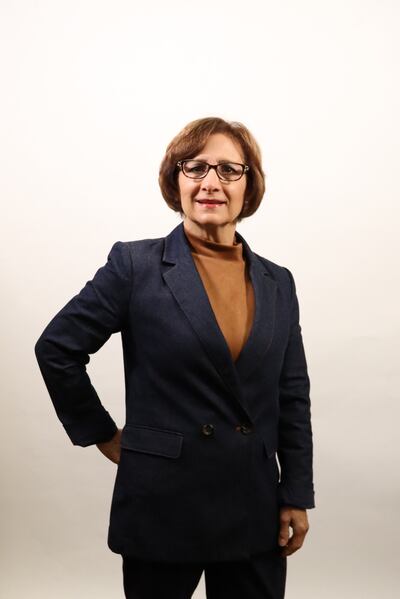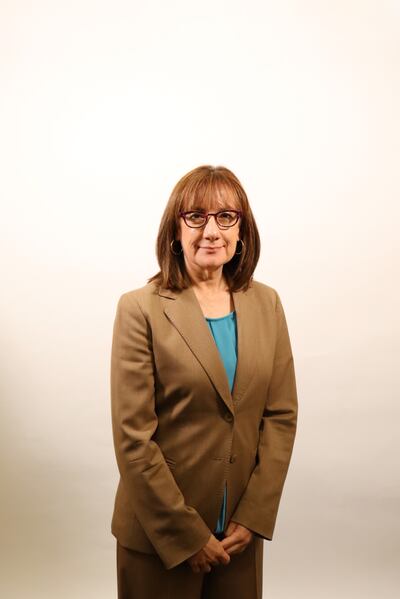President
Kamala Harris
Democrat
On the whole, we’d rather this not be America’s last election.
U.S. House District 1
(Clatsop, Columbia, Tillamook and Washington counties, part of Multnomah County)
Suzanne Bonamici
Democrat

Bonamici, 70, represents Oregonians in the northwest corner of the state. Her district, solidly blue, covers large parts of Multnomah and Washington counties, and stretches from Portland’s South Waterfront all the way to the coast. Thanks to the retirement of U.S. Rep. Earl Blumenauer, Bonamici is poised to become the longest-serving member of Oregon’s congressional delegation—she’s been there since 2012, although she’s so subdued that we sometimes forget. Her husband, U.S. District Judge Michael Simon, in some respects casts a larger shadow in Oregon via his ongoing battles with the Portland Police Bureau.
Bonamici’s platform amounts to a familiar checklist of Democratic talking points: deescalation in Gaza, codifying Roe v. Wade, more funding for arts in schools. Getting her to stake out a novel position is a game we attempt every couple of years and then drop, like a Rubik’s cube.
Still, in this era of D.C., there’s some virtue to being quiet. And during her tenure, the former lawyer has learned a thing or two about the value of reaching across the aisle. Among her accomplishments, she points to recent bipartisan bills that direct federal funding to addiction services in Portland. That’s certainly a win in a city that needs the help.
Her Republican opponent, Bob Todd, is a bit of a mystery. He says in an online survey he plans to “make education great again” but offers no specifics. Joe Christman, the Libertarian candidate, however, is crystal clear about his objective. The computer programmer is running to stop the war in Gaza by ending U.S. support for Israel. We prefer Bonamici’s steady hand.
What Bonamici was known for in high school: She was least likely to become a member of Congress.
U.S. House District 3
(Parts of Multnomah and Clackamas counties and Hood River County)
Maxine Dexter
Democrat

After serving for 28 years in Congress, U.S. Rep. Earl Blumenauer is retiring. That leaves a vacancy in one of America’s bluest districts, representing most of Multnomah County, part of Clackamas County and, traveling east, Hood River County.
Blumenauer’s career was stamped by his championing of cannabis and bicycles, and his parting gift to Portland was a substantial one: He secured $450 million in federal funding to cap Interstate 5 at the Rose Quarter, money that could transform the face of the central city and help remake a Black neighborhood torn apart decades ago.
Our choice to succeed him is Dr. Maxine Dexter, a pulmonologist who served four years in the Oregon House and won an ugly primary battle this spring made notable by the outside spending of Israel’s backers to sink her opponent, former Multnomah County Commissioner Susheela Jayapal.
In Salem, Dexter championed legislation to combat the crisis of fentanyl deaths. As a practicing doctor, Dexter is keenly aware of just how complicated a drug crisis Oregon faces.
Dexter, 51, also helped craft House Bill 4002 in the spring that recriminalized possession of small amounts of hard drugs after the implosion of Measure 110, which voters passed in 2020 to decriminalize drug possession. As chair of the Housing and Homelessness Committee, she also played a critical role in passing the state’s most substantive housing package in a decade.
Dexter’s Republican challenger in the general election is Joanna Harbour, a family planning lawyer from Estacada. As a staunch supporter of former President Donald Trump, we don’t believe Harbour has either the legislative experience or the values to represent Portland in the Capitol.
What Dexter was known for in high school: She was the girl on the basketball team with a 1980 Honda Civic hatchback who drove everyone to practice.
U.S. House District 5
(Clackamas, Deschutes and Linn counties)
Janelle Bynum
Democrat

When Oregon gained a sixth congressional seat in 2020 and redrew boundaries for the other districts, this one—which covers the fir-lined hills south of Oregon City all the way to Bend—remains the most balanced in Oregon in terms of voter registration. (Democrats outnumber Republicans by just over 25,000 voters, or about 4.6% of the electorate.) This contest features a rematch between two candidates who’ve run against each other before: incumbent U.S. Rep. Lori Chavez-DeRemer (R-Ore.), and state Rep. Janelle Bynum (D-Happy Valley).
In those earlier contests for state legislative seats, Bynum, 49, who with her husband owns four McDonald’s franchises, defeated Chavez-DeRemer, the former mayor of Happy Valley. Chavez-DeRemer returned to politics in 2022 with a run for this seat, defeating Democratic nominee Jamie McLeod-Skinner, who had ousted incumbent U.S. Rep. Kurt Schrader in the primary.
In her first term, Chavez-DeRemer has carved out moderate positions on most issues, keenly aware that her district’s delicate partisan balance means her seat is anything but safe. She waited until Nikki Haley dropped out of the GOP presidential primaries to endorse Donald Trump and has attracted some support from labor, including police and fire unions.
Meanwhile, Bynum built a strong track record in Salem. In 2021, for example, she sponsored a large package of police reform bills after George Floyd’s murder that she and her co-sponsor, state Rep. Ron Noble (R-McMinnville), a retired police chief, got through both chambers. The package strengthened background checks for police; tightened rules on traffic stops; clarified what officers can wear on their uniforms; and required officers to report misconduct within 72 hours. Police didn’t like the bills then and have attacked Bynum in this race. More recently, Bynum was chief sponsor of the Oregon CHIPS Act, which will provide funding incentives for tech businesses. As a small business owner, she’s been willing to push back on labor on multiple bills and openly challenged then-House Speaker Tina Kotek to make space for her and other lawmakers of color in leadership.
Brett Smith, a welder, pipefitter and inventor, is running as the Independent Party nominee in this race. He arrived for his interview on a motorcycle he’d modified himself and made a strong case that Congress needs more average citizens like him. Compared with most candidates we met this election cycle, Smith, 42, is well above average, and we hope he’ll remain engaged in elective politics.
One important note: On Oct. 5, Fox News published a story online about a complaint that a former McLeod-Skinner staff member filed with the state Legislative Equity Office in July, after Bynum won the primary. That complaint alleges Bynum failed to report an allegation of possible sexual assault of a minor by a campaign staff member during the 2022 campaign. WW investigated for several weeks before Fox published its story, but we couldn’t substantiate the underlying allegations and chose not to publish a story. In the course of our reporting, we could not determine basic facts, including whether an assault had actually happened, when or to whom. Neither Fox nor any other news outlet that has followed up on Fox’s story has answered those questions, leaving considerable doubt whether the story has substance.
We’re picking Bynum for two reasons: First, she’s been an independent-minded, effective legislator in Salem for four sessions, able to pass challenging legislation and willing to say no to her friends. Second, she is pro-choice. Chavez-DeRemer, who declined to attend our endorsement interview, is not a bad person or a lousy candidate, but given the current threat to reproductive rights, it is important that Oregon’s 5th be represented by a candidate who shares the views of the vast majority of Oregonians. That candidate is Janelle Bynum.
What Bynum was known for in high school: She wore a snail costume as her school’s mascot.
U.S. House District 6
(Polk and Yamhill counties and parts of Washington, Clackamas and Marion counties)
Andrea Salinas
Democrat

Oregon’s newest district, created after the 2020 census to reflect the state’s population growth, is centered in the north-central Willamette Valley. Democrats hold a voter registration advantage of 5.5 percentage points over Republicans in the district, making it Oregon’s second-most-balanced contest for the U.S. House, just behind District 5.
Andrea Salinas, who won the seat in 2022 over Republican Mike Erickson, came ready for the job. She previously worked for U.S. Reps. Pete Stark (D-Calif.) and Darlene Hooley (D-Ore.) and Sen. Harry Reid (D-Nev.). After moving to Oregon, Salinas worked as a lobbyist for unions and environmentalists before getting appointed in 2017 to a state House seat in Lake Oswego. In Salem, she earned a reputation as a diligent, well-prepared lawmaker on track for leadership positions.
She jumped at the chance to go to Washington when this seat was created—but not before creating one of the indelible scenes of the 2019 session. Then-House Speaker Tina Kotek desperately needed Salinas’ vote on a bill that cut public employee retirement benefits. Kotek held the vote open because the votes weren’t there, then pulled Salinas into her office and twisted her arm. A tearful Salinas came back to the floor and switched her vote, winning kudos both from pension system critics and Kotek, and standing up to her longtime labor employers.
As a freshman on Capitol Hill, Salinas authored one of just 27 bills that Congress passed in 2023. It allowed the Grand Ronde tribe to pursue land claims and compensation, a right Oregon’s eight other federally recognized tribes already enjoyed. Salinas worked across the aisle with U.S. Rep. Cliff Bentz (R-Ore.) to craft a bill Republicans would support.
Salinas serves on the Science, Space and Technology Committee, where she is working on congressional support for tapping Oregon’s extensive geothermal resources for clean energy, and on the Agriculture Committee, where she is working to increase federal support for wildland firefighting.
Erickson, who runs a successful Tigard logistics business, has run for Congress three times before, and for the Legislature twice, losing each time. His actions—allegedly dropping a girlfriend off at an abortion clinic while running on a pro-life platform and racking up a 2016 DUII arrest—have undercut his campaigns. In between runs, he’s done little to engage the community or boost his profile in ways that could improve his prospects of winning. Salinas is an easy choice here.
What Salinas was known for in high school: She was a varsity cheerleader.

